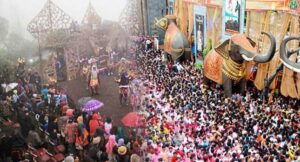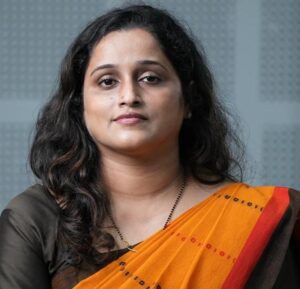Safe conduct of festivals is necessary to prevent transmission of COVID infection. Organisng committees must discuss logistics of festivals including expected number of people, dates and potential barriers to control the crowd with local government and health authorities. All should adopt and follow strict mitigation measures, otherwise the festive season can turn out to be a super spreading event .


Acceleration of COVID-19 transmission through various religious gatherings has been observed in many places in India. It is necessary to adopt and follow strict mitigation measures, otherwise the festive season can turn out to be a super spreading event which eventually may prove to be a burden on the healthcare system.
COVID 19 transmission dynamics is closely related to the 3 Cs:
- CLOSED SPACES with poor airflow
- CROWDED PLACES
- CLOSE CONTACT settings with face-to-face contact
Some of the upcoming mass gathering events such as ‘Navaratri’, ‘Durga Puja’, ‘Dussehra’ etc. will need comprehensive strategic planning in organising them in the current pandemic situation and a collective decision will need to be taken in the form of a consensus from key stakeholders such as policy makers, representatives from religious organisations as well as experts. In this context it is essential to formulate and implement strict standard operating procedures on preventive measures for containment the spread of COVID 19 during the festivals.
The logistics of the festivals including the expected number of people,dates and the potential barriers to control the crowd needs to be discussed with the local government and health authorities.


SOME USEFUL TIPS:
The following guidelines for religious places of worships during festival times and elaborate administrative and general preventive measures can help keep safe from the spread of Coronavirus:
1. No festival related events should be allowed in containment zones
2. All gatherings in connection with upcoming major religious events such as Dussehra, Durga Puja, Vidyarambham etc. should focus on maintaining a relatively safe cluster participation and limited participants
3. All vulnerable populations such as pregnant women, children, geriatric age groups, and immunosuppressed individuals should not attend public religious activities
4. Unvaccinated individuals should be encouraged to avoid gatherings.
5. Norms related to maximum number of permitted persons to celebrate the festival in every setting must be complied with the existing state government guidelines
6. On arrival at religious settings and while attending festivals, all visitors must wash/sanitise their hands frequently
7. Maintaining physical distance of 6 feet wherever possible and always wearing face masks properly is a must.
8. Double masking must be followed, and local government authorities should be deployed to ensure adherence
9. Under any circumstances, symptomatic visitors must not be allowed for darshan and attending the festivals
10. If any of the visitors experience any COVID-like symptoms, viz., fever, cough etc, they should immediately contact the medical teams stationed there
11. Authorities must ensure that no dining should be promoted inside religious settings. In unavoidable cases, appropriate physical distancing must be followed.


Dr Merlin Moni
Associate Professor
Division of Infectious disease
Amrita Hospitals
Kochi, Kerala state











